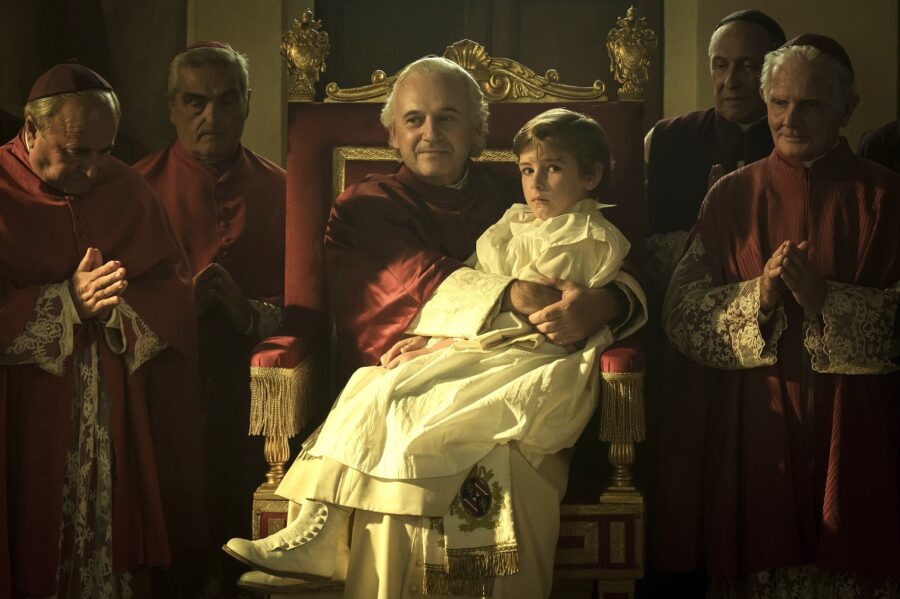The latest by legendary Italian director Marco Bellocchio is a grand, historical fresco depicting the scandalous true story of a young Jewish child who, in mid-19th century Bologna, was abducted from his family by the church under the Pope’s orders.
The indefatigable Italian filmmaking legend Marco Bellocchio has never been one to shy away from controversial topics, particularly while probing his country’s storied past. Kidnapped, his latest, is a grand, historical fresco inspired by the true story of Edgardo Mortara, a young Jewish child who was abducted from his family by the church under the Pope’s orders in 1858 Bologna. The six-year-old boy (Enea Sala) was allegedly baptized in secret as a baby by the family’s maid who feared for his soul should he succumb to illness and die Jewish; pontifical law thus demanded he be raised a Catholic.
With operatic intensity and Bellocchio’s singular precision, the film follows the harrowing fight of Mortara’s parents (played by Barbara Ronchi and Fausto Russo Alesi, so convincing in their anguish) to have their son returned, their unrelenting confrontation with the Vatican quickly garnering support and eliciting outrage from the international Jewish community and Italian liberals.
Telling a story so rich and complex it was once pursued by Steven Spielberg, Bellocchio’s Kidnapped is less an outright critique of Pope Pius IX (a suitably slippery Paolo Pierobon) than it is an exploration of Edgardo’s wracking existential contradictions as an adult (Leonardo Maltese), who accepted his conversion and became steadfast in his beliefs though never quite free of torment. Awash in painterly chiaroscuro, nodding to the masterworks of Caravaggio and Delacroix, the film uses light and shadow to convey the tenebrous, baroque drama of the events — whether Edgardo’s inner turmoil or the country’s momentous unrest as it marched toward unification.


